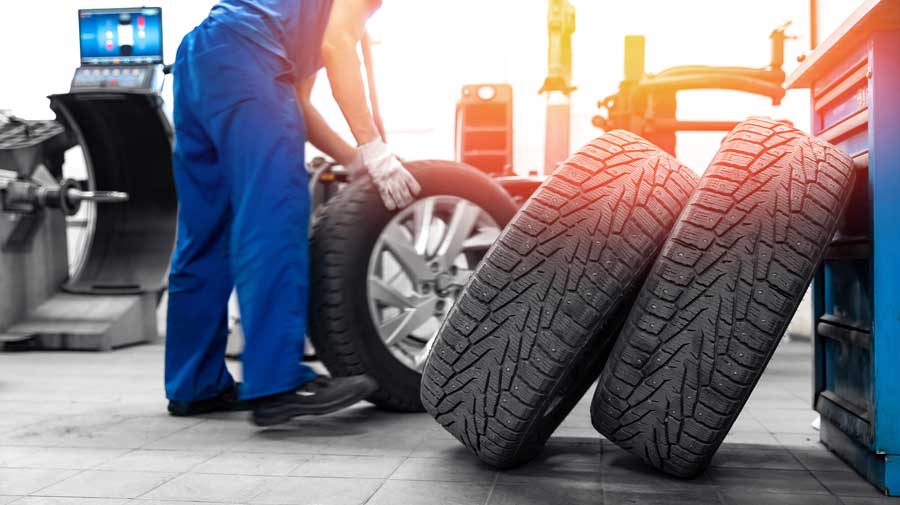Choosing the right tires is a very important decision.
After all, the right tires can give you better gas mileage, a better ride and keep you and your loved ones safe.
Here are some things to think about when choosing the right tires.
When It’s Time to Replace Your Tires
Two things to keep in mind are the age of the tires and the depth of the treads.
A basic guideline is that tires last approximately 25,000-50,000 miles or 3-6 years. This depends on how many miles you put on the car in a year, weather conditions and driving conditions (highway vs. local roads).
If your tires are not giving best performance, you may notice a bumpier ride, pulling off to one side, squealing tires when turning and/or taking longer to stop or sliding.
Your tires should be inspected and preferably rotated to evenly distribute wear and tear when you take in for routine maintenance, but you can always perform the penny test which will give you a good idea of the condition of your treads.
Choosing the Right Tires for Your Vehicle
Before beginning your tire research, start with reading your vehicle’s owner guide for the manufacturer’s recommendations.
Other factors to consider include:
- Tire size
- Weight/load requirements (Load Index)
- Vehicle’s best operating speed (Speed Rating)
Driving Style
Matching tires to your driving style gives you the best performance and most comfortable ride.
Before buying new tires, first figure out your driving habits such as primarily city driving, highway driving, or long-distance travels. Do you make frequent stops?
Also consider whether you drive in rough terrain, which may require a more high-performance off-road tire versus primarily driving in a slower or smoother terrain.
Weather Conditions
Your tires are literally the life force needed for your safety, providing grip, traction and stopping distance on the road.
Especially in wet, rainy conditions, roads tend to be slippery due to oil rising to the top of the pavement. In wet conditions, traction and the ability to stop in slippery conditions is critically important in your tire selection.
Budget
Although tires are an investment no matter which type you choose, sometimes long-term performance tires which may cost more will actually save you money over the years.
Investing in more expensive tires that give you excellent handling, performance and safety will save money on gas and meet or exceed your confidence in the tire performance.
Wrap Up
As you can see, the cheapest price tag doesn’t always save you anything in the long run.
It takes time and careful consideration of your needs and weather conditions before buying tires.
While good tires help keep you safe from fender benders and collisions, sometimes even the most careful drivers are involved in accidents. If you’re one of them, reach out to Downtown Autobody for a repair estimate and high quality, professional service.





